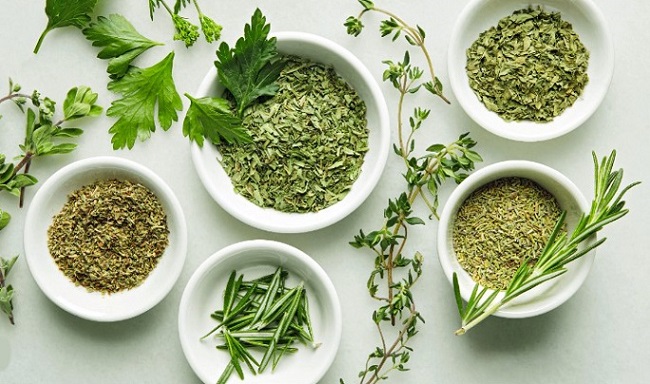Polish and Ukrainian Scientists Find That Plant Compounds Can Protect the Brain and Improve Mental Health
Nikhil Prasad Fact checked by:Thailand Medical News Team Sep 16, 2025 5 months, 1 week, 2 days, 7 minutes ago
Thailand Medical News: Growing interest in natural brain boosters
Researchers from the Institute of Biology at Pomeranian University in Słupsk, Poland, the M.M. Hryshko National Botanic Garden in Ukraine, the Collegium Medicum of Nicolaus Copernicus University in Toruń, Poland, and the University of Zielona Góra, Poland, have reviewed the growing evidence that natural plant compounds can help support brain health and mental well-being. Their findings highlight that certain phytochemicals - substances found in plants - play a protective role in conditions such as depression, anxiety, Alzheimer’s disease, Parkinson’s disease, and even in cases of stress-related “brain fog.” According to this
Thailand Medical News report, these natural compounds appear to act on multiple brain pathways at once, offering broader benefits than many single-target pharmaceutical drugs.
 Polish and Ukrainian Scientists Find That Plant Compounds Can Protect the Brain and Improve Mental Health
How plants help the brain
Polish and Ukrainian Scientists Find That Plant Compounds Can Protect the Brain and Improve Mental Health
How plants help the brain
The study shows that compounds like apigenin (found in chamomile and parsley), hesperidin (from citrus fruits), and epigallocatechin gallate (EGCG) (from green tea) can encourage the brain to grow new nerve cells and protect existing ones. They do this by boosting levels of a protein called brain-derived neurotrophic factor (BDNF), which is vital for memory, learning, and resilience to stress. These compounds can also calm harmful brain inflammation, reduce oxidative stress that damages brain cells, and regulate key brain chemicals such as serotonin, dopamine, and GABA, which are linked to mood and relaxation.
Natural support against mental decline
Phytochemicals were found to protect the brain’s blood–brain barrier, a filter that shields the brain from toxins and harmful substances. When this barrier is damaged—as happens in Alzheimer’s and Parkinson’s—plant compounds such as green tea catechins and rosmarinic acid from herbs like rosemary may help repair and strengthen it. Evidence also suggests that turmeric’s curcumin can limit harmful protein build-up in the brain, while flavonoids such as quercetin can improve energy use in nerve cells and slow age-related decline.
Beyond mood and memory
The review also found that plant compounds may support better sleep, reduce chronic stress, and improve focus in people experiencing brain fog. Herbs like chamomile and valerian enhance calming brain signals, while resveratrol from grapes may even help regulate circadian rhythms. Another important finding was that these natural substances can interact with the gut–brain axis, meaning they influence mental health by supporting healthy gut bacteria, which in turn affects brain function.
What this means for everyday life
While these results are encouraging, researchers stress that more high-quality clinical trials are needed to determine safe and effec
tive dosages for long-term use. Still, the evidence suggests that eating a diet rich in colorful fruits, vegetables, herbs, teas, and spices may help protect the brain against stress, aging, and disease. For many people, this could mean that their daily diet holds the key to better mood balance, sharper memory, and stronger resilience against mental decline.
The study findings were published in the peer reviewed International Journal of Molecular Sciences.
https://www.mdpi.com/1422-0067/26/18/8907
For the latest on Herbs and Phytochemicals, keep on logging to
Thailand Medical News.
Read Also:
https://www.thailandmedical.news/news/phytochemicals-found-in-basil-can-shield-the-brain-from-alzheimer-and-dementia
https://www.thailandmedical.news/news/adaptogens-such-as-arctic-root-and-ashwagandha-support-neurogenesis-and-cognitive-recovery-in-cases-of-brain-fatigue
https://www.thailandmedical.news/news/herbs-and-phytochemicals-oroxylum-indicum-extracts-boosts-brain-health-and-are-neuroprotective
https://www.thailandmedical.news/articles/herbs-and-phytochemicals
